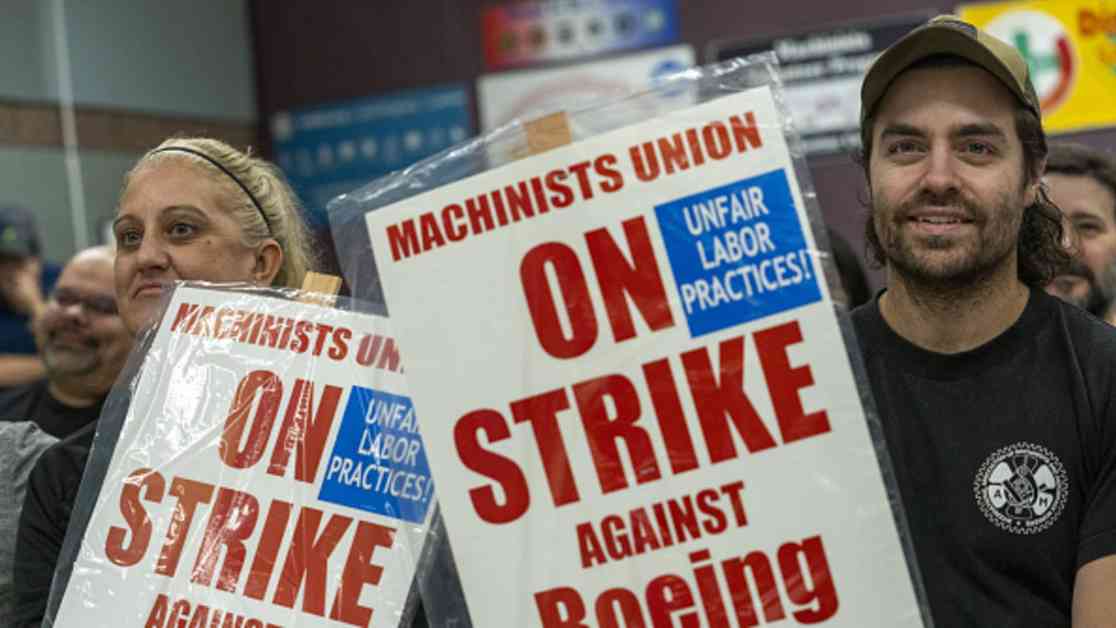Boeing CFO Brian West issued a warning that the ongoing labor strike could have significant repercussions on the company’s recovery and production of aircraft. The strike, which began on Friday, followed the rejection of a new labor contract by factory workers. West expressed concerns about the impact of the strike on aircraft deliveries and the company’s ability to meet production targets.
Financial Impact of the Strike
West emphasized that the financial implications of the strike would depend on its duration but acknowledged that it would affect the production of Boeing’s popular aircraft models. Specifically, he refrained from confirming whether the company could achieve its target of producing 38 737 Max planes per month by the end of the year. Analysts had previously estimated that a 30-day strike could result in a $1.5 billion loss for Boeing, underscoring the significant economic consequences of the labor dispute.
Rejected Labor Agreement
Boeing and the International Association of Machinists and Aerospace Workers had initially reached a tentative labor agreement, which included a 25% wage increase over four years and enhancements to health-care and retirement benefits. However, the workers deemed these terms inadequate, as they had been seeking a 40% raise to offset the rising cost of living. The dissatisfaction among the workers was evident as they voted overwhelmingly to reject the proposed agreement, with 94.6% of workers in the Seattle area and Oregon voting against it.
Union Decision to Strike
Following the rejection of the labor agreement, workers made the pivotal decision to go on strike, with an overwhelming 96% vote in favor of the strike action. The strike officially commenced after midnight on Friday, signaling a significant escalation in the ongoing labor dispute. The union members, represented by the International Association of Machinists and Aerospace Workers, stood firm in their demands for better compensation and benefits, highlighting the importance of fair treatment and recognition of their contributions to the company.
West’s warning about the potential impact of the strike on Boeing’s recovery and production underscores the high stakes involved in resolving the labor dispute. The company’s ability to meet its production targets and deliver aircraft to customers could be severely compromised if the strike prolongs, leading to financial losses and reputational damage. The standoff between the workers and management highlights the complex dynamics at play in labor relations within the aerospace industry, where both sides must navigate competing interests and priorities to reach a mutually beneficial resolution.
The rejection of the labor agreement and subsequent decision to strike reflect the deep-seated concerns and grievances of the workers, who feel that their contributions are not adequately recognized or rewarded. The demand for a 40% wage increase underscores the workers’ struggle to cope with the rising cost of living and maintain a decent standard of living. The rejection of the proposed agreement by such a vast majority of workers signals a strong sense of solidarity and determination among the union members to fight for fair compensation and better working conditions.
The decision to strike represents a significant turning point in the labor dispute, with both sides digging in their heels and preparing for a protracted battle over key issues such as wages, benefits, and working conditions. The strike action sends a clear message to Boeing management that the workers are united in their demands and prepared to take a stand to secure a better deal. The company now faces the challenge of managing the fallout from the strike and finding a way to address the concerns of the workers while also safeguarding its financial stability and operational efficiency.
In conclusion, the ongoing labor strike at Boeing poses a serious threat to the company’s recovery and aircraft production. The rejection of the labor agreement and the decision to strike by the workers reflect their dissatisfaction with the terms offered and their determination to secure better compensation and benefits. The standoff between the workers and management highlights the challenging dynamics of labor relations in the aerospace industry and underscores the need for a swift and equitable resolution to avoid further disruptions and losses for the company.

















